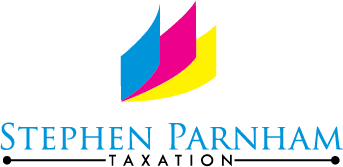The decision, dismissing HMRC’s appeal, was made by the upper tribunal and now forms a precedent which judges can follow in subsequent cases.
Background
Vigne died in May 2012 owning Gravelly Way livery yard in Buckinghamshire, which amounted to around 30 acres of grazing land and a stable block. The yard was valued at £309,000. In 2013 a claim for BPR was submitted on the grounds that the yard constituted relevant business property.
HMRC accepted that the deceased operated a business, but argued that it was a land-based business, which was wholly or mainly one of making or holding investments. Accordingly, it was not eligible for BPR.
First Tier Tribunal hearing
The case reached the FTT July 2017, where evidence was given by Vigne’s family about the nature of the livery business, and their yard in particular.
The provision of worming products and services. This was explained as protecting not just the health of the individual horse but the business’s reputation by preventing the spread of disease between animals.
The provision of additional feed during winter since the livery grew a crop of hay – which the estate explained differed from other liveries who would expect the owners to provide extra feed.
The removal of manure with a special machine which ‘hoovered’ it up – rather than expecting owners to remove their horse’s contribution – and a daily check of the health of each horse.
The presence of a yard manager who was expected to have relevant qualifications in equine care.
The FTT considered that the essential question was whether or not this business was mainly one of holding investments. Looking at the business in the round, they concluded that the enhanced services, which were valuable to the horse owners, meant that the business was offering “significantly more than the mere right to occupy a particular parcel of land”. On this basis, the estate was entitled to 100% BPR on the value of the yard.
Upper Tribunal hearing
HMRC appealed to the Upper Tribunal on a number of grounds, including:
If similar services had been provided to humans, the business would have been considered to be wholly or mainly one of holding investments.
Had the FTT followed Pawson (2013) they would have come down on the side that the investment predominated.
The FTT had erred in law by framing the test as “is this a business of holding investments?” and in effect formulated a new test for itself.
Pawson case
HMRC sought to draw a number of parallels to Pawson. In Pawson, a claim for BPR on a holiday let failed at the Upper Tribunal on the grounds that the services provided in connection with letting the property were not considered sufficient to make the business more than the holding of an investment.
The Vigne estate argued that comparison of the yard to a holiday letting was unreasonable and proposed a comparison to a child nursery business. No further comment is made in the decision, but this was presumably to draw attention to the additional management required for the equine ‘guests’.
Indeed, the judge at the FTT had commented “apparently, horses, just like humans, will often overeat if the opportunity arises” and hence the yard was required to actively manage grazing. A holiday let owner is not usually required to do more than recommend local eating establishments.
What it means
This is an interesting case and one where the FTT decision suggests that the panel enjoyed an education in the business of horse livery – describing the provision of blankets in winter as “something akin to horse coats”.
Ultimately, the upper tribunal was content that there was no reason to disturb the FTT decision, confirming that there “is no clear bright line between businesses which qualify for the relief and those that do not”. In cases where a number of factors must be considered in the round, the Upper Tribunal considered that it should be “slow to interfere” and the FTT was entitled to reach the conclusion it did on the evidence before it.
In respect of when it is reasonable to make the presumption that a land-based business is one of investments, the upper tribunal said that “Pawson makes it clear that such an assumption only applies to owning or holding land in order to obtain an income from it”.
Since the FTT did not consider that the deceased owned the land in order to obtain an income from it, it was open to the FTT to ask if the yard was wholly or mainly an investment business, rather than to presume it was a business of investment and seek to displace that presumption by looking at the services provided.
Beyond the limited field of the livery yard, Vigne, therefore, provides a helpful reminder of the starting point for land-based businesses seeking BPR is the presumption that it is one of investment.


